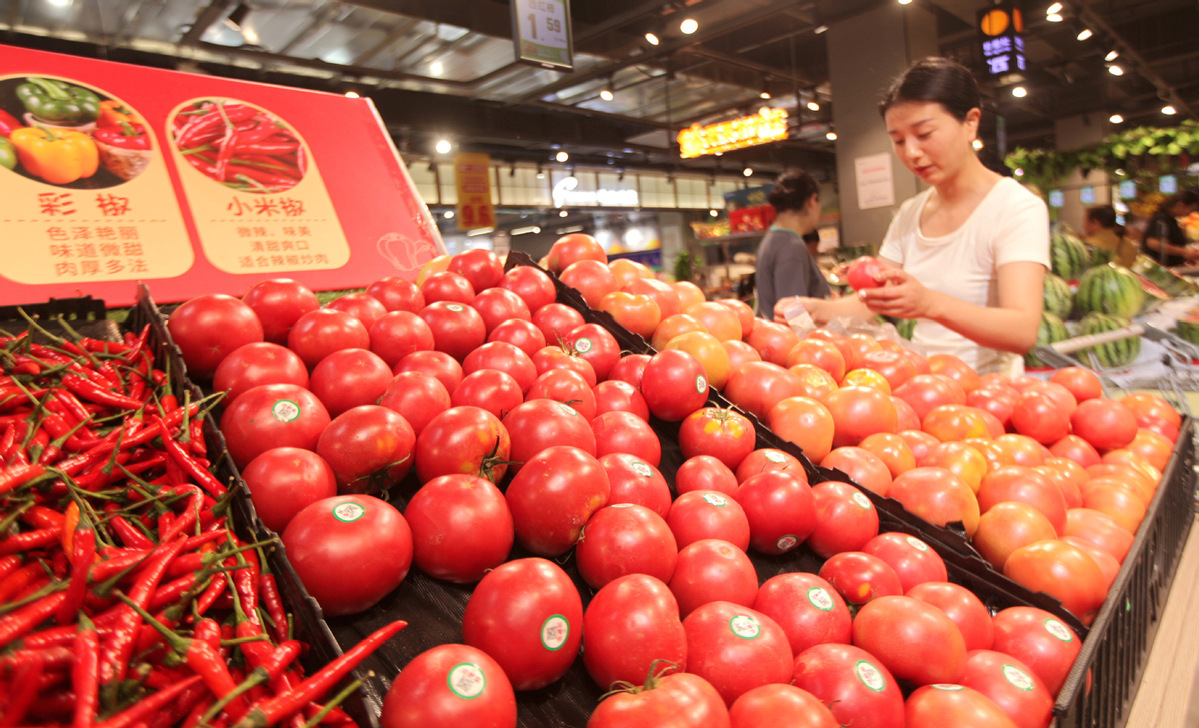More policy support needed to boost demand amid CPI rise, say experts
By OUYANG SHIJIA | China Daily | Updated: 2024-06-12 23:32

China's consumer prices will likely remain steady, with a mild increase in the following months, as the economy is on track for solid recovery this year with a series of stimulus policy measures gradually taking effect, analysts said.
They also noted that persistently low price levels indicate uneven recovery in the world's second-largest economy, highlighting the need for further policy support to address insufficient demand. They emphasized that policy efforts should focus on boosting consumption and accelerating the issuance of ultra-long-term treasury bonds and local government special bonds.
Their comments came as data from the National Bureau of Statistics showed on Wednesday that the country's consumer price index, a main gauge of inflation, rose 0.3 percent year-on-year in May, a rise on par with that in April.
The growth in core CPI, which excludes volatile food and energy prices and is deemed a better gauge of the supply-demand relationship in the economy, rose 0.6 percent year-on-year in May, after a 0.7 percent rise in April.
"Among the eight major expenditure categories within the CPI, only food prices and transportation and telecommunication prices fell year-on-year in May, while the other six categories saw their prices rise year-on-year," said Zhang Xuewu, head of the price analysis and forecasting division at the National Development and Reform Commission's Price Monitoring Center. "That indicates a continued recovery trend in consumer demand."
Zhang said that he expected a mild rise in overall price levels in the following months, as domestic demand is set to continue improving. He noted that a series of policies will take effect, such as driving large-scale equipment replacement and trade-in of consumer goods, that are aimed at boosting consumption and expanding effective investment.
While China's consumer prices rose mildly in May, the producer price index, which gauges factory-gate prices, dropped 1.4 percent year-on-year in May, narrowing from a 2.5 percent decline in April, according to the NBS.
Lu Ting, chief China economist at Nomura, said: "The PPI decline may narrow to 0.7 percent year-on-year in June, due mainly to a still-low base. The recent sequential increase in prices of construction materials, such as cement, may also indicate a narrowing decline in the PPI."
"In view of the jump in wholesale pork prices, softening leisure services activity during the Dragon Boat Festival, and ongoing auto price cuts, we expect consumer inflation to pick up modestly to 0.4 percent year-on-year in June," he said.
Lu said he expects CPI growth to stay positive over the remainder of the year, although it may remain below 1 percent until the fourth quarter.
For the full year, Lu said his team estimates that 2024 annual CPI growth will hit 0.4 percent, while the PPI will decline 0.8 percent.
Cai Hanpian, a researcher at Peking University's National Economy Research Center, forecast that the CPI will rise modestly in the second half of the year with the gradual economic recovery and stabilization.
The World Bank has raised its economic growth forecast for China to 4.8 percent this year, 0.3 percentage point higher than the January forecast. It has also revised its global economic growth forecast upward to 2.6 percent, from January's forecast of 2.4 percent, according to its latest Global Economic Prospects report.
Despite the continued economic recovery trend, Cai warned that the broader economy is still facing pressures from insufficient demand and uncertainties from the external environment.
"The policy focus will remain on expanding domestic demand," she said. "Efforts should be made to speed up the issuance of ultra-long-term treasury bonds and the implementation of advancing large-scale equipment replacement and trade-in of consumer goods."
Zhou Maohua, a researcher at China Everbright Bank, said the recovery in demand has been slower than that for supply, adding that more efforts should be made to boost consumption and increase support for enterprises that are facing pressures from high costs and financing difficulties.
























